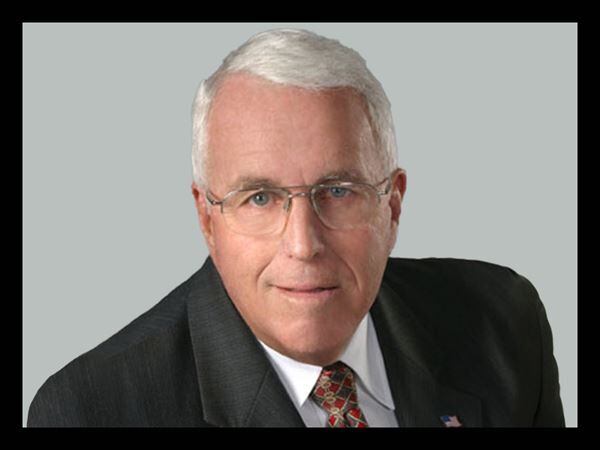Fiscal Fallout: CA could face 3.7% payroll tax hike due to new audit findings
Regional News

Audio By Carbonatix
5:00 AM on Thursday, September 25
Kenneth Schrupp
(The Center Square) – California is scrambling to avoid an automatic 3.7% payroll tax increase to cover its projected $23.2 billion debt to the federal government for COVID-era unemployment benefits payouts, according to information uncovered through a public records request by The Center Square.
With the California State Auditor reporting the state “materially misstated” the finances of its unemployment benefits fund, experts warn these detrimental findings — along with the fund’s growing and sustained deficits — could cause the state’s tax waiver application to fail. The increased payroll tax would stabilize the fund at the expense of workers, businesses, and consumers across the state.
“We saw in the State Auditor’s report — they have called them out for serious management for California’s [Employment Development Department] — inadequate controls, poor accounting in their UI payments, and just a systemic inability to verify benefit eligibility, that’s absolutely a detrimental action because you are failing to properly steward taxpayers’ money in these funds,” said Rachel Greszler, a senior research fellow at the Heritage Foundation, in an interview with The Center Square. “Hopefully it will be determined they do not receive yet another waiver, and they will have to be held accountable for their lack of proper management of the fund.”
California’s interest payments to the federal government on its growing UI debt are nearly $600 million for the ongoing 2025-2026 fiscal year, The Center Square reported in July. The payments are projected to grow to over $1 billion per year from the state’s general fund as benefits payments continue to exceed available funding. The state’s latest projections from May estimate the UI debt will grow by another $1.6 billion this year due to this imbalance.
The 3.7% credit reduction could generate over $3 billion in revenue, which would stabilize the state’s unemployment benefits fund if there is no surge in unemployment benefits claims.
However, according to an economic forecast by UCLA in June, California unemployment is expected to rise to 6.1% in 2025, and remain at 6% in 2026, which would put further pressure on the state’s unemployment benefits fund.
Normally, payroll taxes on wages are nominally 6%, but a tax credit of 5.4% is provided when the state does not have unemployment benefits debt to the federal government, resulting in an effective base rate of 0.6% on the first $7,000 of wages in federal unemployment benefits payroll taxes.
Under federal law, that 5.4% credit is reduced by 0.3% each year after the first two years the state has unemployment benefits debt to the federal government, which provides loans to states to fund unemployment benefits if the state’s benefits fund runs dry.
Upon the fifth year of unemployment benefits debt, the credit is further reduced by a Benefits Cost Rate surcharge, which California’s Employment Development Department — the agency managing the state’s unemployment insurance program — estimates would be 3.7%.
To secure a waiver substituting the 3.7% tax increase for a 0.3% tax increase, the United States Department of Labor California must demonstrate that it has not taken any detrimental actions to worsen the solvency of its unemployment fund.
The state auditor’s report noted EDD removed $46.2 billion in liabilities from its financial position regarding COVID-era ineligible unemployment benefits payments; during the final days of the Biden Administration in January, the Department of Labor said the state would not have to “repay the federal government for paid ineligible UI benefits that remain unrecovered.”
This federal guidance for ineligible payments was issued under Biden Labor Secretary Julie Su, whose prior job was overseeing California’s COVID-era unemployment benefits program, leading critics to question if it was fair for Su to use her federal power to reduce state liabilities that were created under her watch. The guidance did not apply to the state-funded benefits or the state's outstanding loan; the state continues to carry its $21.6 billion and growing unemployment benefits debt to the federal government.
If the payroll tax waiver is not approved, the payroll tax credit reduction could result in a relative federal payroll unemployment benefits tax increase from 1.5% to 5.5%, which economic experts have told The Center Square would put further pressure on entry-level jobs already strained by rising wage requirements.
“Coupled with increases in the minimum wage, these policies will hurt the youth of our country because they will not be able to get on the first rung of the economic ladder,” said Tim Taylor, California policy director for the National Federation of Independent Business, in an earlier interview with The Center Square.
A September study from the Employment Studies Institute using quarterly federal data that is more reliable than the monthly federal survey found California’s $20 per hour fast food minimum wage has resulted in 19,102 lost jobs.
The latest July data from the United States Bureau of Labor Statistics show there are 1.4 unemployed Californians for every job opening — the highest ratio of any state in the nation, and 40% higher than the national average.
“California has really bad labor policies — they’re preventing people who want to be their own bosses from being able to set up shop and do businesses through the AB 5 law,” said Greszler. “They’re enacting massive minimum wage mandates that are going to result in more people being unemployed, more people drawing on the unemployment insurance fund — and just taking money out of the government coffers instead of being productive in jobs and contributing to them.”
The United States Department of Labor and EDD did not respond to media inquiries by the time of publication.







